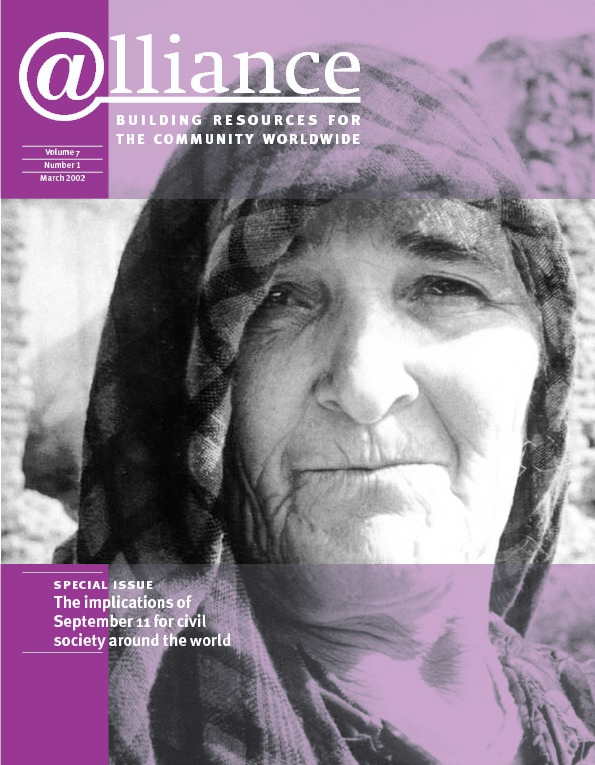The Afghan Women’s Summit for Democracy in Brussels in early December 2001 brought together over 40 Afghan women activists.[1] The aim: to give voice to Afghan women’s aspirations and demands as the world begins to focus on the rebuilding and strengthening of Afghanistan.
Eve Ensler, founder of V-Day and creator of the Vagina Monologues, eloquently expresses the spirit of the Brussels meeting in her report:
‘This summit allowed Afghan women to collectively experience their terrible years of oppression, and to find their voices and dreams for the future. …One woman who was a teacher told of how she asked students to always keep the Koran on top of their desks. They would study every other kind of subject. When she saw the Taliban approach, she would quickly tell them to turn to page 15 of the Koran and read.’
There were also about 25 non-Afghan human rights activists from other countries.[2] Many had lived under different forms of Islamic governance – in Morocco, Algeria, Palestine and Jordan – and they had practical experience to share with their sisters from Afghanistan: how to ensure women’s rights in a new constitution; what Islamic jurisprudence teaches about respect for women; what strategies to use to challenge narrow definitions about the public role for women.
The most striking testimony to the success of the summit can be found in the priorities the Afghan women set for themselves in the ensuing Brussels Proclamation. The women of Afghanistan have been denied the most basic rights – jobs, education, personal freedom, personal safety, medical care – for over two decades while the world has looked away. Despite this, their document does not call for any kind of retaliation. Rather, they demand that any new Afghan government commit to providing its people with education and health care, the protection of refugees, culture and basic human rights.
Finally the document asks us, the citizens of the world, to open our eyes, to protest when women’s rights are abused in the name of religion or national interest. ‘Afghanistan is everywhere,’ they remind us. Each time we as a world community fail to stand up to defend the human rights of women, anywhere in the world, we condone the abuse that women experienced in Afghanistan.
1 The meeting was organized by Equality Now, the Feminist Majority, V-DAY, the Center for Strategic Initiatives of Women and the European Women’s Lobby. Global Fund for Women (GFW) supported it with a grant of $30,000. It was co-sponsored by UNIFEM.
2 Many of these women were GFW advisers and grantees like Fareeda Shahid of Shirkat Gah, Pakistan, or Rada Boric from the Center for Women War Victims in Croatia.
Kavita Ramdas is President and CEO, Global Fund for Women. She can be contacted at kavita@globalfundforwomen.org
For more information about the Afghan Women’s Summit, visit the GFW website at http://www.globalfundforwomen.org





Comments (0)